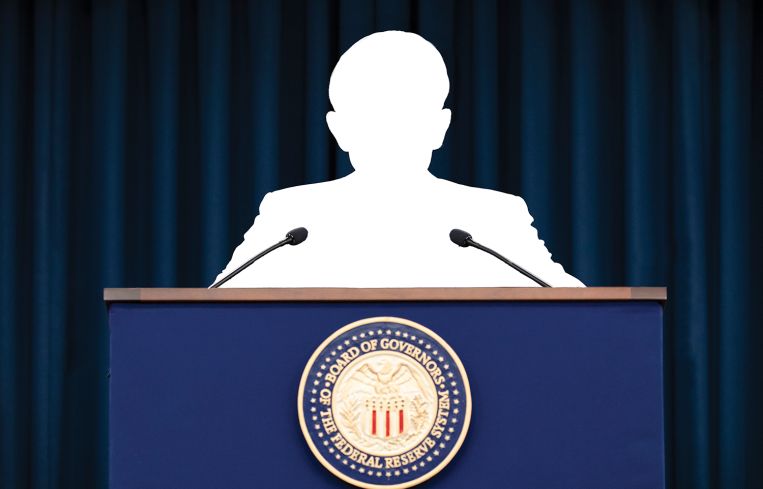Lenders 2024: CRE Has Thoughts on Who Should Be the Next Fed Chair
By Amanda Schiavo November 5, 2024 6:00 am
reprints
There are approximately 18 months to go before the president — whomever that may be at the time — will need to appoint a new Federal Reserve chair.
In July, current Chairman Jerome Powell said he would remain in his position until his term is up in May 2026, ending speculation that he’d step down early if former President Donald Trump — whom he often clashed with — retakes the White House in January in the wake of the 2024 election.
Powell was sworn for his first term in 2018 and then again in 2022 for his second, the first time with Trump’s blessing. And, although there is more than a year before a new Fed chair is sworn in, that doesn’t mean there haven’t been discussions about the type of person who should assume the role — especially within the commercial real estate industry, given the central bank’s outsize role in determining the cost of borrowing money.
The next Fed chair should be “anyone who will provide for market stability, settle rates in a moderate zone, and not be quick to pull the trigger one way or another from there,” Michael Lavipour, head of lending at Affinius Capital, told Commercial Observer.
Under Powell, the Fed raised interest rates to their highest levels in over 20 years with 11 hikes between March 2022 and July 2023. Raising interest rates so often was part of an effort to fight inflation, and it brought borrowing costs from near-zero levels to a high of between 5.25 percent and 5.5 percent.
In September, the central bank reversed itself. The Fed cut interest rates to between 4.75 percent and 5 percent, ending a streak of eight straight rate pauses. The September cut marked the first interest rate cut since the early days of the COVID-19 pandemic.
Eventually, when the day comes that Powell is no longer chair of the Fed, there is a specific type of person the CRE industry would want to see in the position.
“It is in the long-term best interest of the real estate industry that we have a Fed chair and a Federal Reserve broadly that is independent of the political process and political pressures, and that remains resolutely focused on balancing price stability and employment,” Sam Chandan, an economist and the director of New York University’s Stern Chao-Hon Institute for Global Real Estate Finance, told CO.
Not wanting to name anyone specifically — a trait other sources shared when it came to speculating about the next Fed chair — Chandan did say potential candidates could emerge from within the existing Federal Reserve Board of Governors. These would be the sort of individuals who are committed to keeping the Fed independent and apolitical, according to Chandan.
One person who could fit that bill (outside of the current Fed board) is former PIMCO CEO Mohamed A. El-Erian, according to Drew Fung, managing director and fund portfolio manager for debt at Clarion Partners.
“I am a big fan of Mohammed A. El-Erian’s views on the global economy and Fed policy,” Fung said. “He is, in my view, a terrific combination of economic theory, global perspective, and practical application in investing. His views on Fed policies are well researched and supported by economic data, and are well respected within the broader financial industry.”
Could a new Fed chair come sooner rather than later?
There has been speculation that should Trump win a second term he’ll take action to remove Powell from his position and replace him with someone who isn’t as committed to the Fed’s independence. And, if he doesn’t go after Powell’s job, there have been reports that Trump will try to demote Fed Vice Chair Michael Barr, who oversees regulating Wall Street.
Now, there is some ambiguity as to whether the removal of the Fed chair or the demotion of one of its board members is actually something that a president can do.
“Trump has indicated that he may seek to remove Chairman Powell from his role before his term ends in 2026, during various speeches and in comments he’s made,” Chandan said. “It’s not clear that the president has the power to remove the Fed chairperson from their role. And if the incoming president were to seek to do that, it’s likely that the current Fed chairman would seek recourse through the court system.”
However, if a future administration is able to remove the current chair and seeks an outsider candidate with a nontraditional view of monetary policy, it could signal a significant shift in the Fed’s decisionmaking policies.
“A Fed that is not independent is widely understood to mean that political pressure will play a role in pushing rates lower than what is optimal in terms of long-term price stability,” Chandan said. “And, while there may be some sectors that benefit from higher inflation, broadly that is not optimal for the economy, and, by extension, it is not optimal for the real estate industry.”



